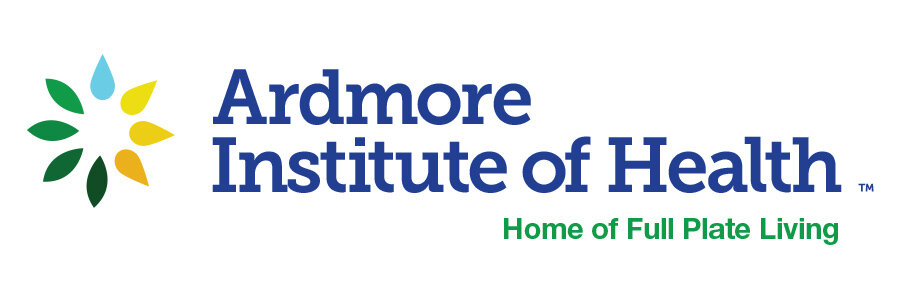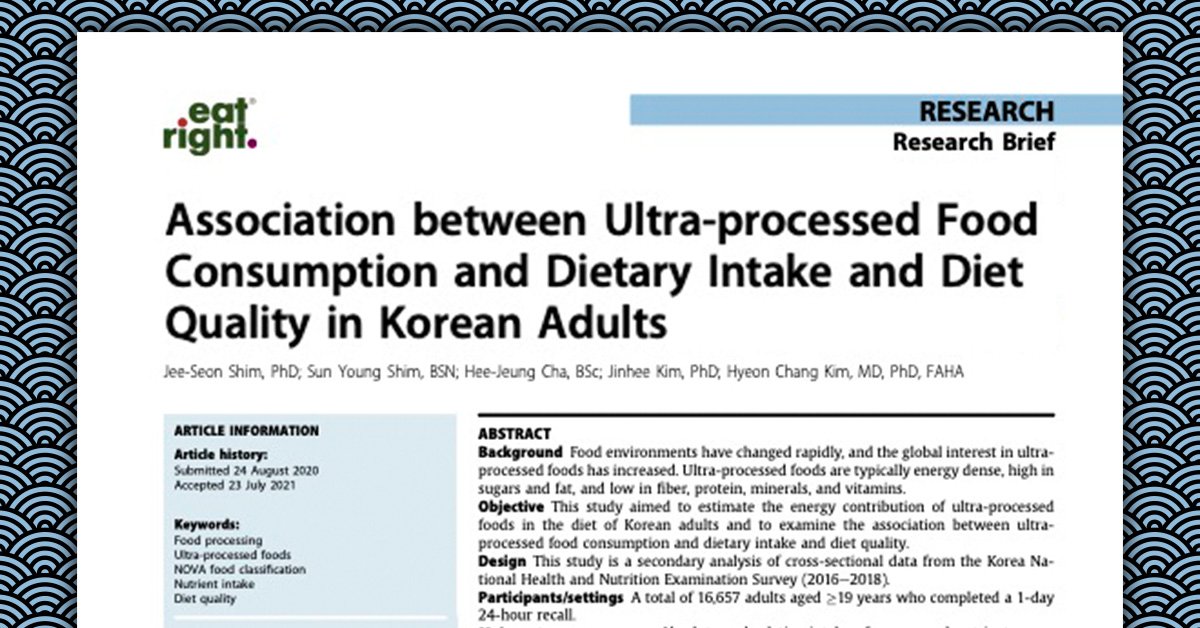Association between Ultra-processed Food Consumption and Dietary Intake and Diet Quality in Korean Adults
This article was published in the Journal of the Academy of Nutrition and Dietetics.
Abstract
Background
Food environments have changed rapidly, and the global interest in ultra- processed foods has increased. Ultra-processed foods are typically energy dense, high in sugars and fat, and low in fiber, protein, minerals, and vitamins.
Objective
This study aimed to estimate the energy contribution of ultra-processed foods in the diet of Korean adults and to examine the association between ultra- processed food consumption and dietary intake and diet quality.
Design
This study is a secondary analysis of cross-sectional data from the Korea Na- tional Health and Nutrition Examination Survey (2016e2018).
Participants/settings A total of 16,657 adults aged !19 years who completed a 1-day 24-hour recall.
Main outcome measures
Absolute and relative intake of energy and nutrients were measured and dietary quality was assessed using the Korean Healthy Eating Index (KHEI).
Statistical analysis Multiple regression models adjusted for sociodemographic vari- ables were used to examine the association between quintiles of ultra-processed foods dietary energy contribution and dietary intake and quality.
Results
Mean reported daily energy intake was 2,031 kcal, with 25.1% of calories coming from ultra-processed foods. Mean energy contribution from ultra-processed foods ranged from 3.6% kcal (Q1) to 52.4% kcal (Q5). Energy contribution of ultra- processed foods was positively associated with reported intake of daily energy, total sugars, and total and saturated fat and inversely associated with reported intake of carbohydrates, fiber, minerals, and vitamins. Both sodium and potassium were nega- tively associated with percentage of energy from ultra-processed foods. However, the sodium-to-potassium ratio was high regardless of quintile of energy contribution from ultra-processed foods, and the ratio was positively associated with percentage of total energy from ultra-processed foods. Although the KHEI score was inversely associated with percentage of daily energy from ultra-processed foods, all levels of ultra-processed food consumption were associated with poor diet quality.
Conclusions The ultra-processed foods consumption of Korean adults accounted for one fourth of daily energy intake, and a higher dietary energy contribution from ultra- processed foods was associated with poorer dietary intakes and a lower dietary quality. Further studies are needed to understand factors influencing selection and consumption of ultra-processed foods and to identify effective strategies to promote healthy food choices.

